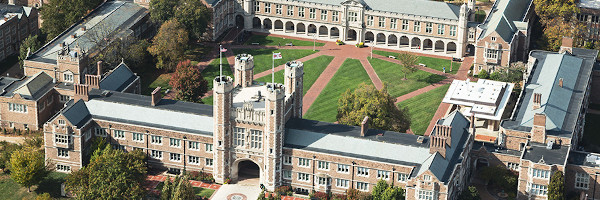World Digital School
| World Digital School | |
|---|---|

| |
 Danforth Campus – Washington University in St. Louis | |
| Team Organizations | Washington University in St. Louis Delmar-Divine Elite Fiber Systems |
| Team Leaders | Sharonica Hardin Robert Dillon |
| Participating Municipalities | St Louis |
| Status | Negotiations |
| Document | None |
Description
Cities and communities around the world are entering the next era of transformational change in which citizens and their surrounding natural and built environments are increasingly connected by digital technologies. In the coming digital industrial revolution, technology will widen the playing field to include greater participation of individuals and ideas from all walks of life as we reinvent who and what we are. These technologies not only have the potential to build a more inclusive community, but when thoughtfully applied could help realize greater socio-economic gains. Conversely, if these technologies are not available to all, we would fragment our communities more than they are today.
Smart Cities are %90 sociology and %10 infrastructure.
Challenges
Currently, pubic and provide sector organizations are not well prepared for a digital world and lack both technological and socio-economic understanding. The market puts too much emphasis on technology and not enough emphasis on education and realizing inclusive socio-economic gains. This lack of education and understanding is particularity apparent amongst community leaders and administrators. On the other hand, young people today have intuitive digital skills and hold the greatest promise to transform our society.
New forms of education will be essential to realizing the socio-economic benefits of Smart Cities in a Digital World.
Solutions
NA
Major Requirements
The World Digital School is a design based on social impact. It is the future of school as it has a mission based in compassionate change and positive societal disruption. The school believes that all communities and neighborhoods find safety and security in spaces that are more just. To allow for this reality, the World Digital School is a model for scalable educational future that believes that all students should study and experience learning through the lens of social, economic, and environmental justice. To do this, students will be tasked with real-world experiences supported by staff and partners that prepare students to be leaders, advocates, tech and social entrepreneurs. Combining the models of the Ashoka Changemaker schools with the networked communities envisioned by the Gates Foundation along with the local prototype of the Iowa Big School, the World Digital School allows students through projects, capstone experiences, and internships to use their problem solving and creativity to build a new community readiness.
- Work with the University City Schools to select a school site.
- Create vision, mission, requirements, SOW and project plan.
- Hold community and Playbook workshops to engage and educate the community.
- The development will include a school building, library, mixed use, short and long-term living spaces.
- Work with the community, developers and architects to confirm the best school design and features.
Performance Targets
| Key Performance Indicators (KPIs) | Measurement Methods |
|---|---|
|
World Digital School in many ways will present challenges to traditional forms of education and teaching methodology, and will require new methods of education, curriculum and teaching philosophy to be developed. For World Digital School to be successful, it will need to be able to balance the needs of current methodology and new methodology. This will require a new set of KPI’s to be developed and then approved by the school’s board and the local educational establishment. The new KPI’s would include but not be limited to inclusion, social impact, economic and community impacts as well as current KPI’s such as:
|
NA |
Standards, Replicability, Scalability, and Sustainability
The World Digital School is a new and timely departure from traditional methods of teaching and will cut through old ways of doing things and embrace new ways of doing things. We expect this trend to continue year over year as the pace of technology and social impact changes.
Replicability and Scalability: The school will establish an organizational and educational framework that can be shared with other national and internationals schools.
Sustainability: A local consortium will be formed so that other school districts can contribute and participate in school programming and activities. Separate advisory boards will also be formed for the private sector and participating technology companies.
Standards: The World Digital School readiness standard will require a school that has a consortium of seats, both physical and virtual, that includes local, regional, and international stakeholders and students committed to this type of learning.
Cybersecurity and Privacy
Areas of study will include: cybersecurity for greater communication and collaboration, use of the internet of things for empathy and compassion, ethically responsible social platform development, and growing the global mindset through VR/AR technology.
Impacts
- Improvement in the education processes necessary for citizens to participate in an inclusive digital world.
- Better understanding of the economic impact of a digital world.
- Better understanding of the social impacts of a digital world.
- Improvement in the development of related policy and the adoption of community solutions.
- Improved adoption of technology initiatives and solutions.
- Improved job creation and workforce development outcomes
Demonstration/Deployment
The World Digital School will be located in the Delmar-Loop iNnovation Neighborhood. Ecosystem footprint.